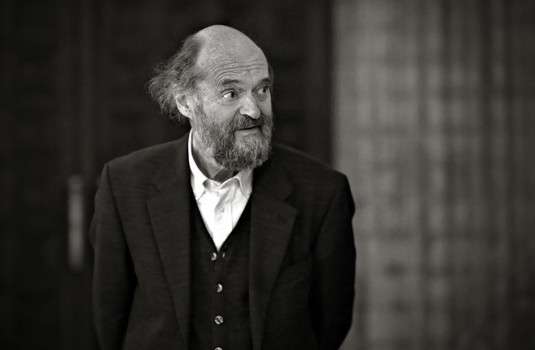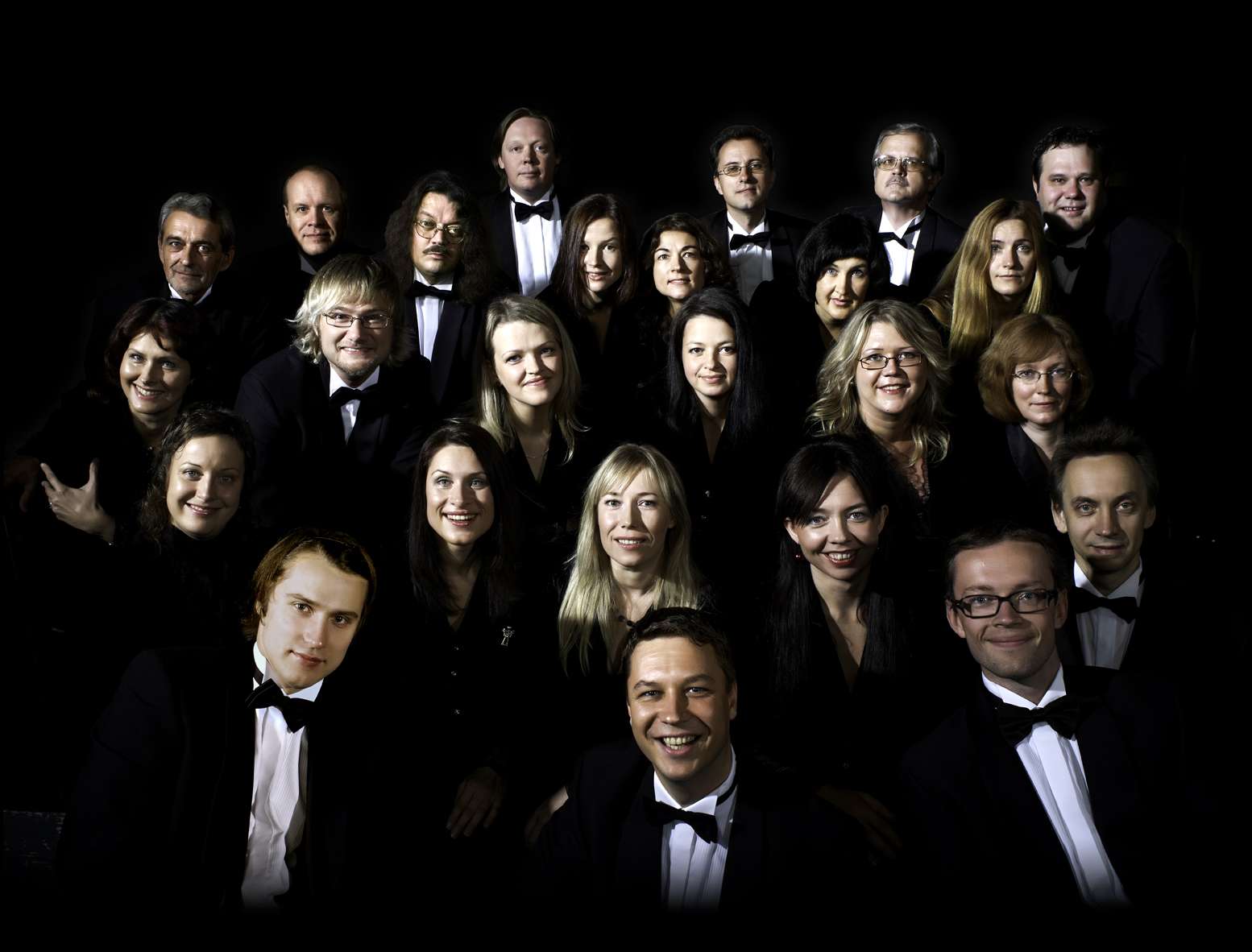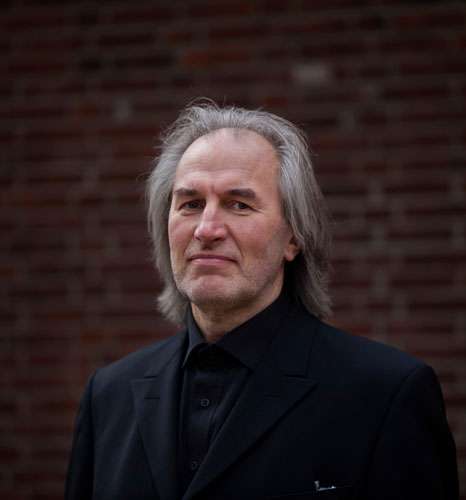|
Back
Laments and Revelations New York
Alice Tully Hall, Starr Theater
11/17/2012 -
Arvo Pärt: Berliner Messe – Te Deum – Trisagion – Adam’s Lament
Latvian Radio Choir, Sinfonietta Riga, Tõnu Kaljuste (Conductor) 
A. Pärt (© Kaupo Kikkas/ECM Records)
"I could compare my music to white light which contains all colors. Only a prism can divide the colors and make them appear; this prism could be the spirit of the listener.”
Arvo Pärt
Atheists would have been in short supply between 57th Street and 68th Street last night. In Carnegie Hall, John Eliot Gardiner prayed for our heavenly deliverance, through Beethoven’s Missa Solemnis, physically jolting our bodies headfirst into the heavenly stratosphere. If that didn’t work, eleven blocks north, Tõnu Kaljuste and the Latvian Radio Choir gave non-believers a more internal path to salvation, as well as a very depressing message which he wrote to the Islamic believers of Istanbul a few years ago.
Either way, while I am certain Mr. Gardiner gave a convincing Beethoven, it was the always fascinating Arvo Pärt which attracted me to the penultimate White Light Festival concert. First because (as you can read above) it was Pärt which gave the title to the Festival. Second, while Pärt can frequently have a sameness, (once one deciphers his harmonic voices) two works in the second half were unfamiliar to me, and absolutely fascinating.

The Latvian Radio Choir (© Latvian Radio Choir)
Third, of course, is that the Latvian Radio Choir, which appeared here two years ago, has the most fascinating vocal range. There is nothing “Slavic” or heavy about their voice (and they would doubtless take it as a mortal insult that I would even suggest this). Instead, they have a clarity, a brilliance of harmony, and such faultless enunciation that I could make out the Russian words of the dramatic poem which finished the concert.
This, Adam’s Lament, written for a premiere in Istanbul (thus the eponymous title of a man accepted in the three Semitic religions), was totally different than any Pärt I had ever heard. It had been played at a concert here two years ago, but then I was so stunned by the composer and the choir, that it was part of the landscape. Last night, I was astounded at how different this from the usual Arvo Pärt.
In fact, Adam’s Lament, a virtual drama (like the Russian Orthodox Church Easter Service), is a total depression. Yet the music is so illustrative part cantata, part opera (yes, Bach, yes, a Verdian oom-pah-pah) that the elegy by the Russian poet-Saint (Silouan of Athos) was perversely enjoyable. First, a choral introduction telling how Adam sinned, but he didn’t miss the beauty of heaven (gentle pizzicati) as much as he missed God’s love (strings musing sadly). Then came Adam’s own lament, finished off with even more sadness that Cain killed Abel.
In New York phrasing, “Has he got problems!”
But Pärt never allowed the music to be simply abstract. The pain, the suffering, the joys of heaven, the tacked-on happy ending (“Let us try to enjoy God’s bounty”) were given splendid tone-painting.
Before that was the string orchestra playing a work of three tones, Trisagion. As Pärt had written Adam’s Lament for Istanbul, this was composed for a church in a tiny Finnish village. The composer is obviously a man of ecumenical humility and kindness.
Trisagion itself showed the Riga Sinfonietta at its finest. Luscious strings, taking those three tones of a minor scale, expanding, contracting, offering the typical Pärt harmonies, ending with chords repeated into what he might call an eternal reverberation.
The first half had more familiar music, starting with the full Catholic Berliner Mass (like Lutheran Bach, the Russian Orthodox Pärt is not averse to the Church of Rome). At first hearing, this, like the following Te Deum is hypnotic, and mystical. So I must recuse myself, having heard it several times and not moved by it any more.

T. Kaljuste (© Courtesy of the Artist)
Nonetheless, listening to thse two groups, with their excellent conductor, Tõnu Kaljuste, was redemption in itself. I hadn’t realized that Maestro Kaljuste is a noted symphonic and opera conductor throughout Europe. So why, one must ask, do we have to wait for the Latvian Radio Choir and Riga Sinfonietta to appear for him to conduct one of our major orchestras?
Not that one could have regrets for these ensembles, which gave two different concerts this week. For this holiday season, the groups from Latvia a composer whose Byzantine roots have blossomed into revelation.
Harry Rolnick
|